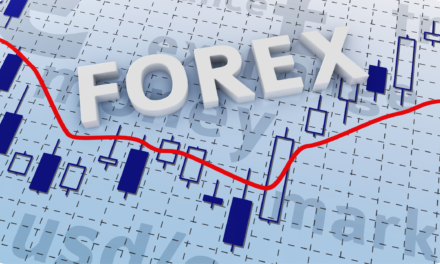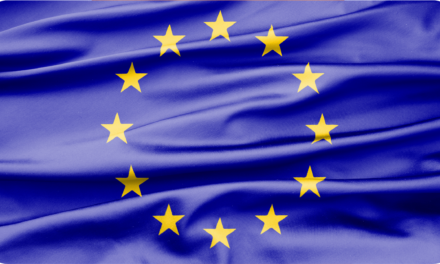Eurozone and UK on the up as emerging markets struggle.
Recent reports out of the eurozone indicate vaccinations are back on track in major economies like Germany which has coincided with the UK opening up sectors of the economy this morning. As divergence grows where exactly do emerging markets stand?
Eurozone
Eurozone has showed resilience as retail sales rebounded more than expected in February, fuelling hopes that consumers are back to doing what they do best, Spend. We have seen a increase in non-food related products which is of particular importance. This jump is the highest in six month beating estimates which sat at 1.5% to record a 3% rise. Given the surge in vaccinations announced this weekend by eurozone countries we are convinced this will allow governments to lift most restrictions during summer, prompting the release of any pent-up spending by consumers.
Goldman Sachs analysts said in a note on Monday that “confidence is rising that the euro area will rebound sharply into the summer” and the “pace of vaccinations has stepped up markedly, on track to reach 50 per cent of the population in early July”.
UK Opens up retail sector and other areas of the economy
The UK proceeded to lift lockdown restrictions on certain economic sectors this morning which was met by enthusiastic patrons even willing to brave snowfall as a cold spring snap hits. This didn’t dampen spirits in the UK as we have seen large numbers of people visiting stores and pubs across the country, with rumors that London restaurants are booked up till end of may. This definitely bodes well for the UK recovery which has also seen an uptick in business confidence. Helen Dickinson, chief executive of the British Retail Consortium, says it was a “big day” for reopening businesses, and that many were “excited and desperate” to welcome customers back.
Emerging Markets and the growing uneven recovery
Over the past two weeks we have seen many institutions upgrade their global outlook but none more important that the IMF which followed the OECD in upgrading forecasts for the developed and emerging markets. Global Markets are expected to grow by 6% this year compared to the previous 5.5% estimates. While medium-term losses for the global economy were expected to be smaller than during the aftermath of the 2008 crisis, “the cross-country pattern of damages is, however, likely to be different this time,” the IMF’s chief economist Gita Gopinath said. Poor countries and emerging markets were set to endure more hardship, compared to a decade earlier when advanced economies were hit hard hit by the global financial crisis, Ms Gopinath said. “These divergences, however, are not just occurring between countries but also within them,” she said.
Income inequality within countries is set to increase due to young workers and those with relatively lower skills being more heavily affected in not only advanced but also emerging markets and developing economies, according to the fund.
The uneven recovery has begun, what are the implications for emerging markets?
As the global recovery picks up pace we are seeing the widening gap between the emerging and developed markets. This creates a huge problem which the IMF doesn’t take lightly as it will contribute to wider gaps in living standards, compared with pre-pandemic expectations. This will lead to greater inequality which is something the IMF has been trying to reign in.
The divergence in recoveries are attributable to a host of combined factors which include poor governance, corruption, vaccination plans and lack of finances which may be used to stimulate economic growth. We have seen a surge overnight in india to record over 150000 new covid cases in 24 hours, while other emerging markets have already begun hiking interest rates. While the US, EU and UK central bank have all expressed similar sentiment regarding interest rates coupled with huge stimulus packages we have seen the complete opposite from emerging markets where governments are short of finances we have seen interest rate hikes and new taxes imposed in order to cover the costs associated with Vaccination and stimulus packages.
The average annual loss in per capita gross domestic product from 2020 to 2024 is projected to be 5.7 per cent in poor countries and 4.7 per cent in emerging markets, while losses in advanced economies are expected to be smaller at 2.3 per cent. The losses are reversing gains recorded in efforts to reduce poverty, as an additional 95 million people were considered extremely poor last year, compared with pre-pandemic projections. Last year’s downturn saddled emerging market and developing countries with more debt and limited their capacity to address rising poverty and inequality levels.
Where to from here for emerging markets?
Averting divergent outcomes will require, above all, resolving the health crisis everywhere as a priority. Economic policies will need to limit persistent damage, secure the recovery and prepare for the post-Covid world, while being mindful of available policy space.
Given the limitations of countries and higher debt levels, policies need to be “better targeted to maintain the ability to support economic activity through this uncertain period as the race between the virus and vaccines unfolds”, Ms Gopinath of the IMF said.
“A tailored approach will be necessary, with policies well-calibrated to the stage of the pandemic, strength of the economic recovery and social and economic circumstances of individual countries,” she said.
“Once the health crisis is over, policy efforts can focus more on building resilient, inclusive and greener economies, both to bolster the recovery and to raise potential output.”
As citizens all we can do is hope that government heeds these warnings and takes on the advice provided by the IMF. South Africa has never had an issue planning but rather implementing and if there was ever a time to get it right this would be it.
Source: IMF Global Gutlook





